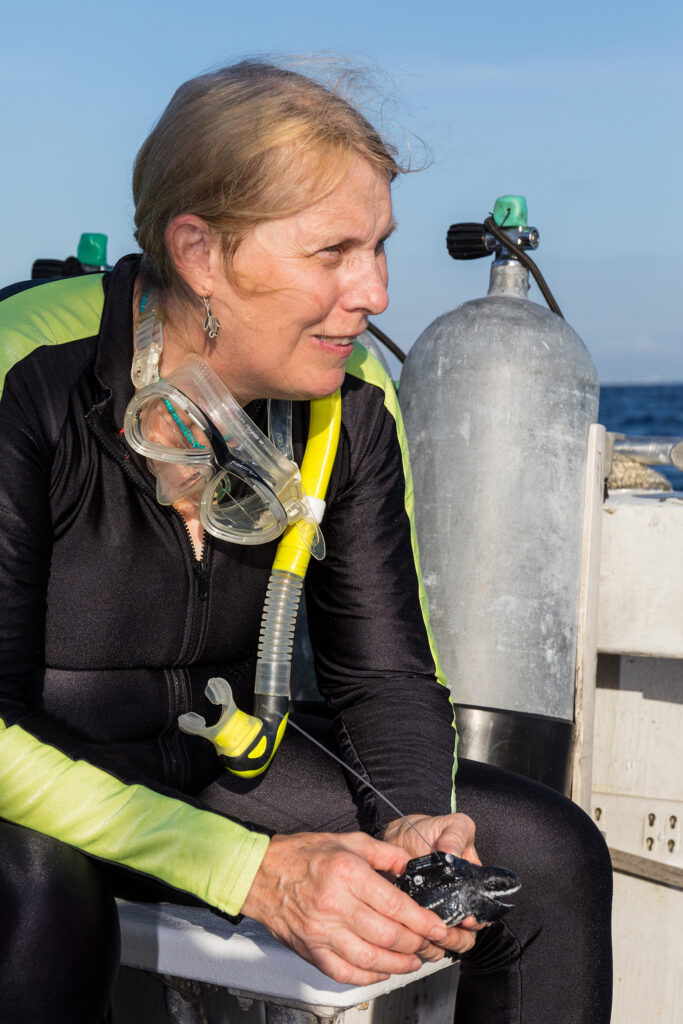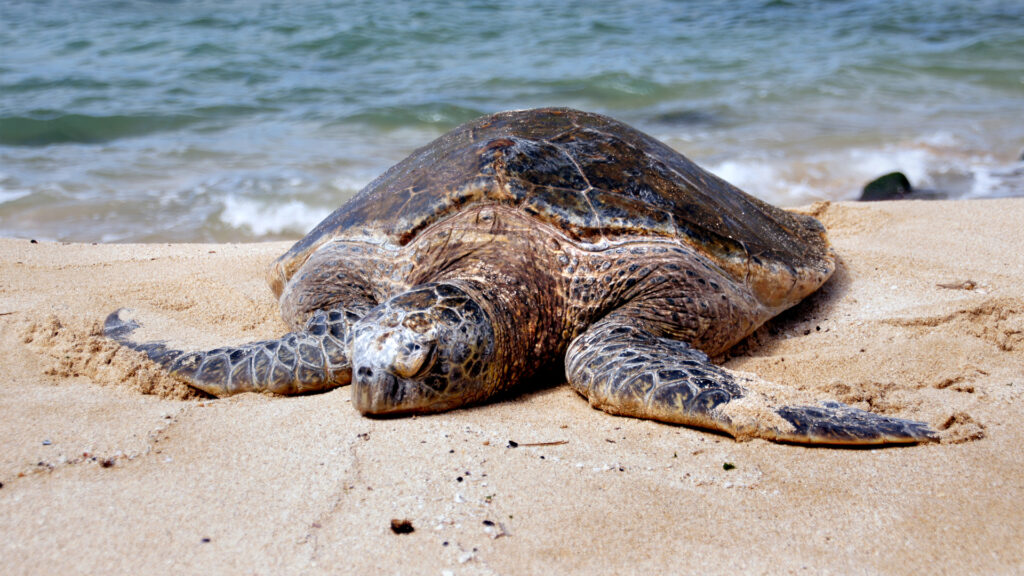By Bella Kubach, FAU School of Communication and Multimedia Studies
The following is a Q&A conducted with Jeanette Wyneken, who has been a professor of biological sciences at Florida Atlantic University since 2000. Wyneken directs FAU’s Marine Science Laboratory, located in the Gumbo Limbo Environmental Complex in Boca Raton. The work conducted by Wyneken and other scientists at the Marine Lab includes research on sea turtles and conservation efforts of the species.

How important of an issue is climate change for South Floridians?
Oh, it’s huge. Climate change is kind of a catch-all term for what’s happening with our trends in weather. We can see what it’s done to our local weather within the last decade or so. Obviously, Hurricane Ian made a big impact on the state. We’re seeing more severity in the weather. The severity in the weather comes back to changes in the air flow patterns and changes in the oceans. Those changes are also involved with tornado formations. It comes back to the warmth of the bodies of water that these things form over. The warmer the water, the greater the potential for a developing storm to form into something big and powerful.
Are rising sea levels the most pressing effect of climate change here in South Florida?
It depends on where you live. For us here in Boca Raton and further north, probably not as pressing right now or even in the next decade. If you live in Miami or Tampa, it’s a bigger deal. But, we even see how A1A gets more flooding now than it did 20 years ago. I would say that’s a growing problem. I think the more important problem is its impact on our economy. The impact on our lives. If your house gets destroyed, that’s a pretty big impact on your life. One of the impacts of all the damage from hurricanes and fires is insurance rates skyrocketing. Some of the people over on the West Coast didn’t insure their homes and they lost everything. That has an unfathomable economic impact. Suddenly, you’re homeless and you have no equity. To me, that’s probably a more pressing issue. Part of that may circle back to the rising sea levels: Should we be so close to the coast?
As an educator, what are the most important aspects of climate change that you teach your students? What resources do you use to do this?

I’m the director of the FAU Marine Lab. Our agreement to have that building in the Gumbo Limbo Environmental Complex requires that we translate science for the public. Part of what I’m doing is a long-term study of the effects of temperature on the development of sea turtles. Initially, there was enough resistance to the concept of climate change that we didn’t talk about it. Instead, we talked about the warming weather and its impact on the sex ratios of the turtles because they have environmentally determined sex. Hotter nests mean all girls. We have a lot of years where the turtles are all girls. You don’t have to be a rocket scientist to know that’s not sustainable over time. That’s one way that we talk about climate change – by sneaking it in as a story about turtles.
How would you advise your students to work towards lessening their impact on climate change?
One of the ways I do this is by advising students to go online and calculate their carbon footprint. I had never thought about how often you get a new car impacts your carbon footprint. You’re not only dealing with the manufacturing process, but also the freight traffic to bring all the parts of the car together.
Do you think we’re doing enough to stop climate change?
It depends on the individual. Some people are doing a great job. Some people ask: “What can my individual impacts do?” It’s the same problem with voting. You think, “Well, if I don’t vote, it’s no big deal. It’s just one vote.” But, you see some of these states where people win by 47 votes. That’s 47 individuals who said, “I should’ve gone to the polls today.” I always say it’s the power of many small units.
Which marine species is being the most affected by climate change?
There are some ecosystems and coral reefs that are being profoundly impacted. For Florida’s story, the seagrass beds are a pretty big deal. It’s low on the food chain and without the structure, other species suffer. I’d say that locally, the shallow water coral and their ecosystems and the seagrass beds are facing the most negative impacts. We know that the manatees are starving because the seagrass beds are dying out. They’re dying out because of water temperature and water quality.
What are the best ways to bring awareness to South Floridians?
Wonderful stories. There’s got to be multiple approaches because people learn things in different ways. It’s ignoring politics and making sure facts are real. There are no alternative facts in my world. It’s also taking time to explain these things. Some people won’t listen, but it’s not worth it to waste time on one person when you can get to 50 in different ways.
How do you prevent the topic of climate change from being politicized?
Well, the water doesn’t care what your politics are. The storms don’t care which party you’re in.
This Q&A was conducted by Bella Kubach, a junior majoring in multimedia journalism at FAU. It was corrected to include the proper name for the Gumbo Limbo Environmental Complex.



